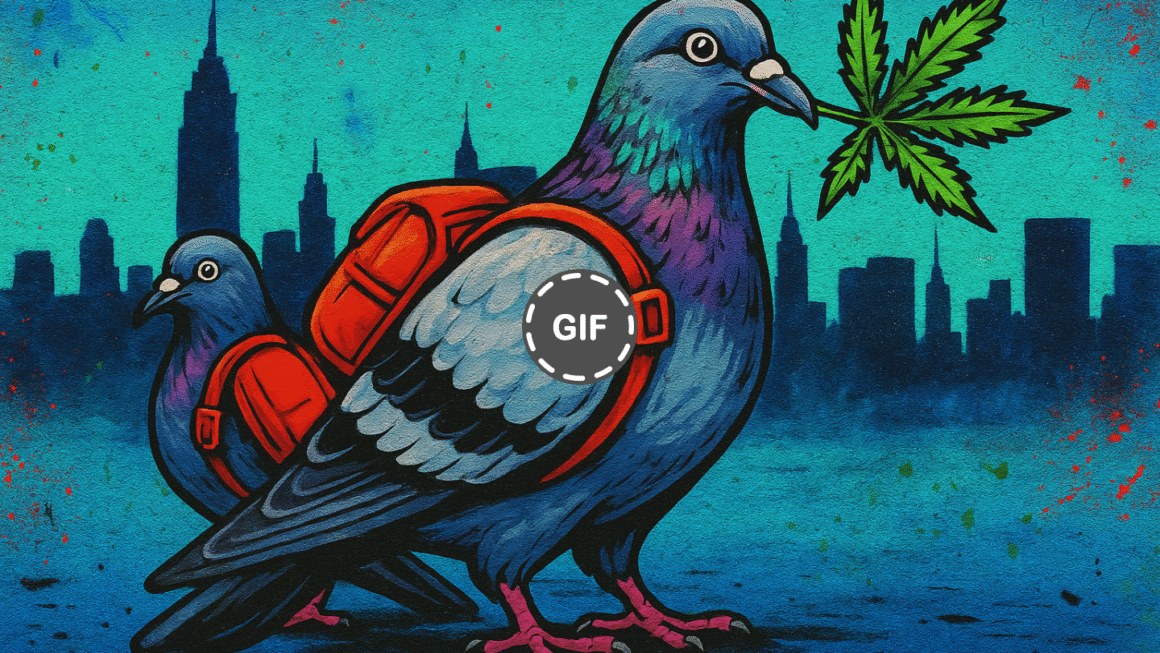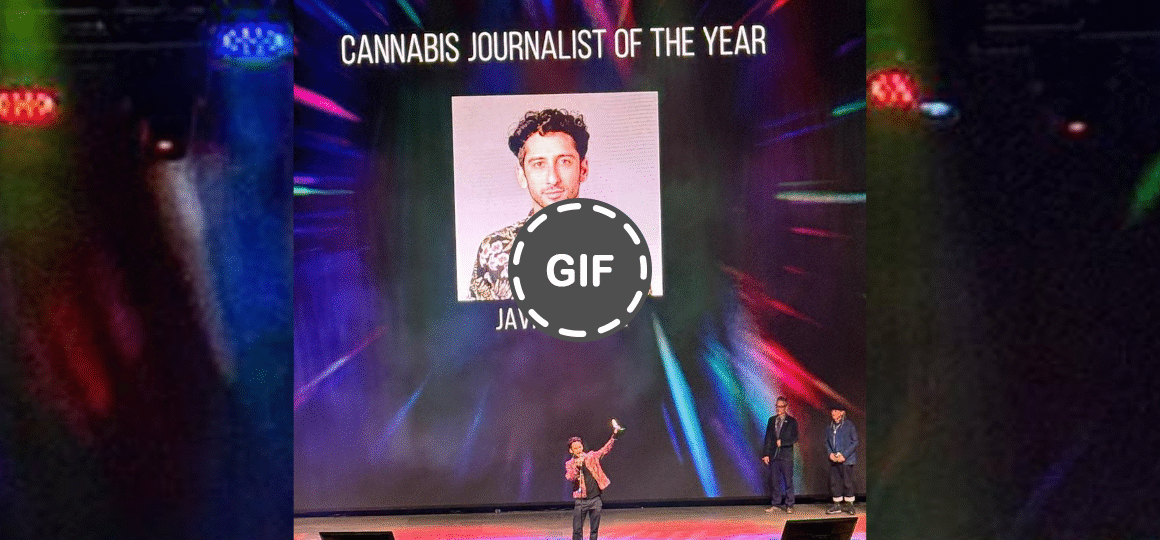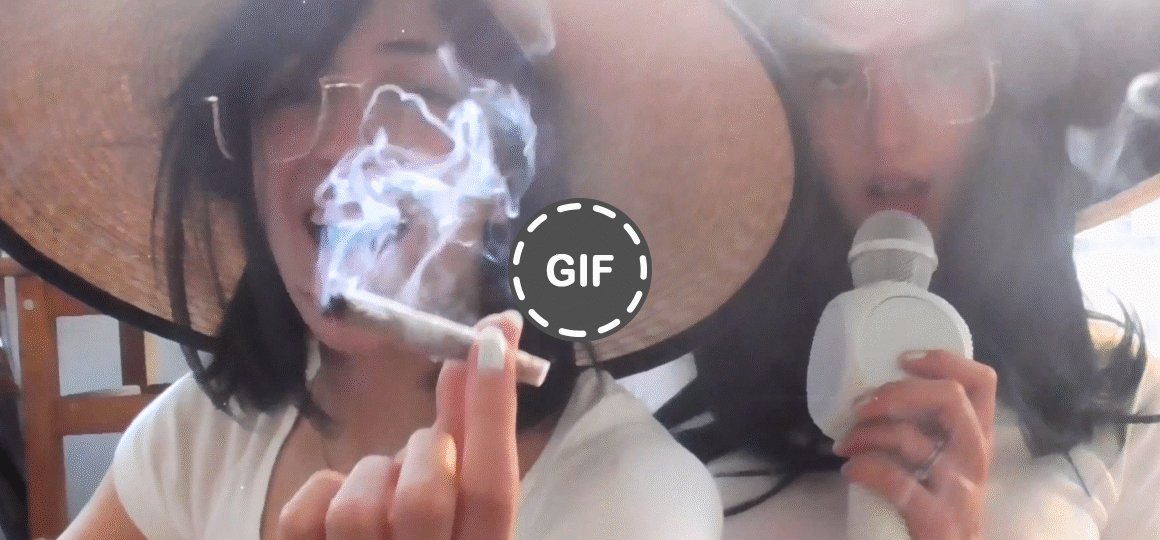As prohibitionist policies tighten, drug users find loopholes to keep using, often at the expense of their own health. There even seems to be a direct relationship: the stricter the state control, the more dangerous the alternative substances developed to circumvent the law. Because there’s no shortage of opportunists who, in the absence of efficient state apparatuses, launch all kinds of unsafe drugs onto the illegal market.
Currently, such a situation is unfolding in Asia, where more and more countries are finding cases of etomidate use, grimly nicknamed “zombie juice.” In recent years, this highly addictive compound has begun appearing in e-liquids for vaping in China, Thailand, Singapore, Cambodia, Macau, Indonesia, and Malaysia, according to the United Nations Office on Drugs and Crime (UNODC), and is also spreading to other continents. Other sources also claim that etomidate use is becoming a public health issue in Japan.
Despite attempts by authorities to prohibit and curb this drug, its use continues to increase, as do deaths attributed to it. So, what’s going on?
What is etomidate?
Etomidate is a fast-acting intravenous anesthetic used in clinical settings. While it is used to induce general anesthesia by suppressing central nervous system activity, its exact mechanisms aren’t fully understood. Its side effects include pain, nausea, hallucinations, amnesia, disorientation, numbness of the extremities, and adrenal dysfunction. It is also a highly addictive substance when administered without professional supervision. According to a 2024 study, chronic etomidate overdose can cause irreversible brain damage, mental disorders, behavioral issues, and even death.
It’s especially the loss of motor control and seizures that earned etomidate the nickname “zombie juice.” Tremors, memory loss, fainting, and deaths have also been observed in recreational users.
Today, its use has transcended medicine: actors in the illegal drug market are mixing etomidate into e-liquid capsules for vaping. This mixture is known by many names: kpods, space oil, laughing gas, zombie juice… often presented in electronic vaporizers with a variety of flavors and eye-catching colors. These are surprisingly easily obtained through social media and encrypted messaging platforms, where they are bought by an alarmingly young user base.
One especially alarming pattern (and perhaps the most terrifying) seen across the continent is that many users don’t take etomidate on purpose, but by accident, mistakenly assuming they are using ketamine, cannabis, or just nicotine. The risk skyrockets when we consider that these adulterated cartridges are indistinguishable from normal ones.
Authorities typically respond with strict bans: reclassification, heavy fines, long prison sentences, and even physical punishment. However, as has been seen with other substances, such measures are not enough. For example, China has tried to ban this substance several times, but with each attempt, new analogues quickly emerge to replace it, such as metomidate, isopropoxate, and propoxate.
Etomidate in Asia: What’s the Deal
As we mentioned, this drug is wreaking havoc on the health of people across Asia, but the specifics vary by country. Therefore, below we delve into the problems in some regions to better paint a picture.
Japan
In Japan, the situation with etomidate is already being compared to the fentanyl crisis in the US, according to Japan Forward.
Speaking with High Times, Dr. Yuji Masataka, an expert in cannabinoid medicine, shared that regulatory authorities have nicknamed etomidate “Zombie Tobacco.” The fabrication, importation, sale, possession, and consumption of this drug began to be banned in May of this year. However, a new product called “Ketapen” (a ketamine vaping product) had already begun circulating on social media in March. Today, the doctor explains, “it is now widely suspected among users on social media that the contents were not ketamine but rather etomidate (although it seems ketamine may have initially been included, with etomidate later added to intensify the effect).”
Japanese law enforcement is facing an unprecedented challenge: particularly in Okinawa, where even children as young as 10 have been arrested, users easily obtain etomidate vaporizers through social media and encrypted messaging apps. This new method makes law enforcement’s job much harder.
Hong Kong
According to Asia News, Hong Kong has been grappling with etomidate since 2023, when it began to be sold on the street as “space oil.” Authorities changed the drug’s official name several times, eventually abandoning the fictional names andfinally settling on the name “etomidate”. Since February, it has been classified as a dangerous drug in Hong Kong and China.
So far, authorities recorded 300 users in 2024 and 327 more in 2025, but the real number is likely to be much higher. The majority are minors, and cases of children as young as 9 years old using the substance have been reported.
Currently, the penalty for possessing or using etomidate in Hong Kong is up to seven years in prison and a fine of HKD 1 million (USD 128,577). In addition, traffickers and manufacturers face life imprisonment and a fine of HKD 5 million (USD 642,885).
And where such penalties fail to deter users, security forces have tried to appeal to young people’s modesty, emphasizing the effects of etomidate on body image. Chris Tang, Hong Kong’s Secretary for Security, warned that use of this drug can cause “drooling, hair loss, facial hair growth in young women, or skin and genital ulcers and deformities.” He also noted that the substance can lead to “undignified and indecent self-harming behaviour in public that can be easily recorded and posted online.”
However, it is important to clarify that not all of his claims are supported by scientific evidence (we have not found, for example, any studies linking etomidate to facial hair), and they may have been exaggerated to to scare or shock young people.
Singapore
The situation is also critical in Singapore, where etomidate has been popularized under the name Kpods. Social service agencies have observed an increase in the number of patients seeking help after abusing the substance; most are between 15 and 29 years old, but there have been cases as young as 13, CNA reports.
One of the factors aggravating the situation is the lack of knowledge surrounding the drug, its long-term effects, and its perceived risks. Apparently, many young people believe that, since it’s a substance used medicinally, it’s not dangerous for recreational use.
Social media and encrypted messaging apps are also the means by which these vaporizers are trafficked, making them easier to purchase and hampering law enforcement’s work.
According to CNA, the drug rehabilitation center Addictions Recovery Singapore stated that “etomidate is not the only risk. We have seen evidence that vape liquids can also be clandestinely laced with ketamine, cocaine, methamphetamine, heroin and synthetic cannabinoids… This dramatically raises the stakes, as individuals may be entirely unaware of what they’re inhaling, compounding the risk of unpredictable psychological reactions and multi-drug dependence.”
In fact, a random analysis of vape pens confiscated in July revealed that one in three contained etomidate, The Guardian reports. Furthermore, peddlers on the illicit market apparently promote this substance as undetectable in urine tests.
Regarding the regulatory situation, Singapore is among the countries with the harshest drug penalties, including the death penalty. While vaping in general has been banned since 2018, the situation with etomidate has led authorities to impose even more severe measures.
Anyone caught using vapes laced with etomidate faces fines of SGD 500 (USD 388) for those under 18, or SGD 700 (USD 543) for adults, and mandatory rehab programs lasting up to six months. For repeat offenders, fines rise to SGD 2,000 (USD 1,552) and/or 10 years in prison. Importers, on the other hand, will face sentences of between 3 and 20 years in prison, in addition to flogging. For sale and trafficking, the penalty is imprisonment.The age limit ranges from 2 to 10 years, and corporal punishment is also included.
Beyond sentencing, measures will be implemented to detect and curb etomidate use in educational establishments and airports. This includes saliva and urine testing in schools, where students caught vaping or who fail these tests will face discipline and possible expulsion. Containers for international travelers to discard their vapes will be installed at airports, and warnings are planned. Thus, foreigners could face the same penalties as locals, in addition to potential deportation and a ban from entering the country.
The specter of prohibition
It is hard not to compare the etomidate situation in Asia with other health crises caused by drug abuse, such as the opioid crisis in the United States.
History repeats itself: this is not the first time that an anesthetic drug has become used recreationally on the illegal market. Cocaine and ketamine are perhaps the most popular examples of this trend, in addition to the aforementioned fentanyl. And as with these drugs, prohibition, far from deterring users, pushes them to seek increasingly risky alternatives. In fact, some sources link the spread of etomidate to the classification of synthetic cannabinoids.
It’s a vicious cycle: punishment doesn’t make drug use vanish; it just fuels marginalization and insecurity. Around the world, we see countries that cling to the War on Drugs fail to achieve their objectives, fuel the illegal market, and harm the most vulnerable.
Asian countries have a harsh history when it comes to substance use: zero tolerance, extremely punitive measures, social stigma… Perhaps this is an opportunity for authorities to draw inspiration from other, more humane and health-focused methods (which have proven time and again to be more effective) for protecting their people.





